Alumni Spotlight: Serbia
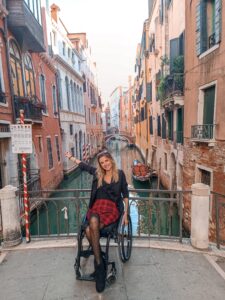
Hello! My name is Milica Knezevic, and I am from Serbia. I attended Wright State University in Dayton, Ohio during the fall semester of 2017. I studied information technologies and software engineering. I am a wheelchair user and an active lobbyist for the rights of people, especially women, with disabilities, and for raising awareness about the challenges we face daily.
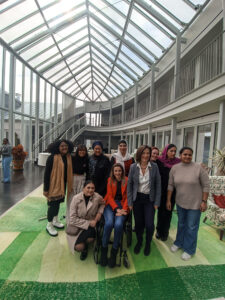
After my Global UGRAD exchange program concluded, I took part in an internship with an international IT company. I worked there during my senior year of college and I am currently a Senior Test Developer with this same organization. Outside of work, I educate young people and high school students throughout Serbia about road safety. During the pandemic in 2021, I, together with a group of young disabled people, started a non-formal organization of young disabled people and our allies. This organization gave us the opportunity to connect, learn from one another, share ideas, and work together on solving issues we face in our daily lives. The first project focused on starting a movement in support of changing regulations regarding medical aids and devices.
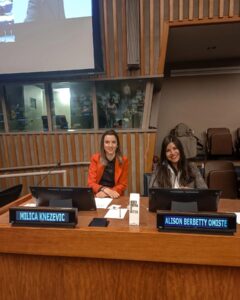
On March 13, 2023, I was one of the panelists at the first Interactive Dialogue within the 67th UN Commission on the Status of Women, themed “Innovation and technological change, and education in the digital age for achieving gender equality and the empowerment of all women and girls.” I represented Europe, particularly young women with disabilities. Referring to equality and inclusion for all, I shared that “today women, especially women with disabilities, still fight for basic human rights in most parts of the world. We don’t have the option to leave anyone behind. Technology should be something that will improve our lives, be the tool that we use to live the best of our lives, and not something to further divide what we already have”.
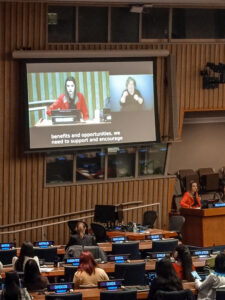
I was one of five young leaders chosen from different UN regions around the globe to participate as a panelist. We shared our lessons learned as well as best practices and experiences relating to the role of innovation and technological changes in achieving gender equality and the empowerment of women and girls. My goal was to remind everyone of the importance of the inclusion of young women and girls with disabilities, but also to highlight the role of technology in improving our lives and being the tool that can help us live to our full potential instead of exacerbating existing challenges.
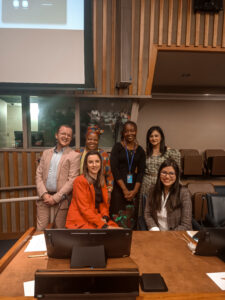
Global UGRAD not only impacted my work, but it was also a life-changing experience. It allowed me to learn about and work on projects related to my major and also taught me how to live alone for the first time. I experienced how studying and living can be different when there are support systems and programs in place for disabled students and when accessibility for wheelchair users is a norm and not an exception. I met many amazing people from around the world and made life-long friendships. Two years ago, one of my professors from Wright State University traveled all the way to Serbia to run a half marathon with me! I learned about different cultures, studied in a different education system, and traveled and experienced the United States, but also learned more about myself, became more courageous, and moved beyond what I once perceived as my own boundaries.